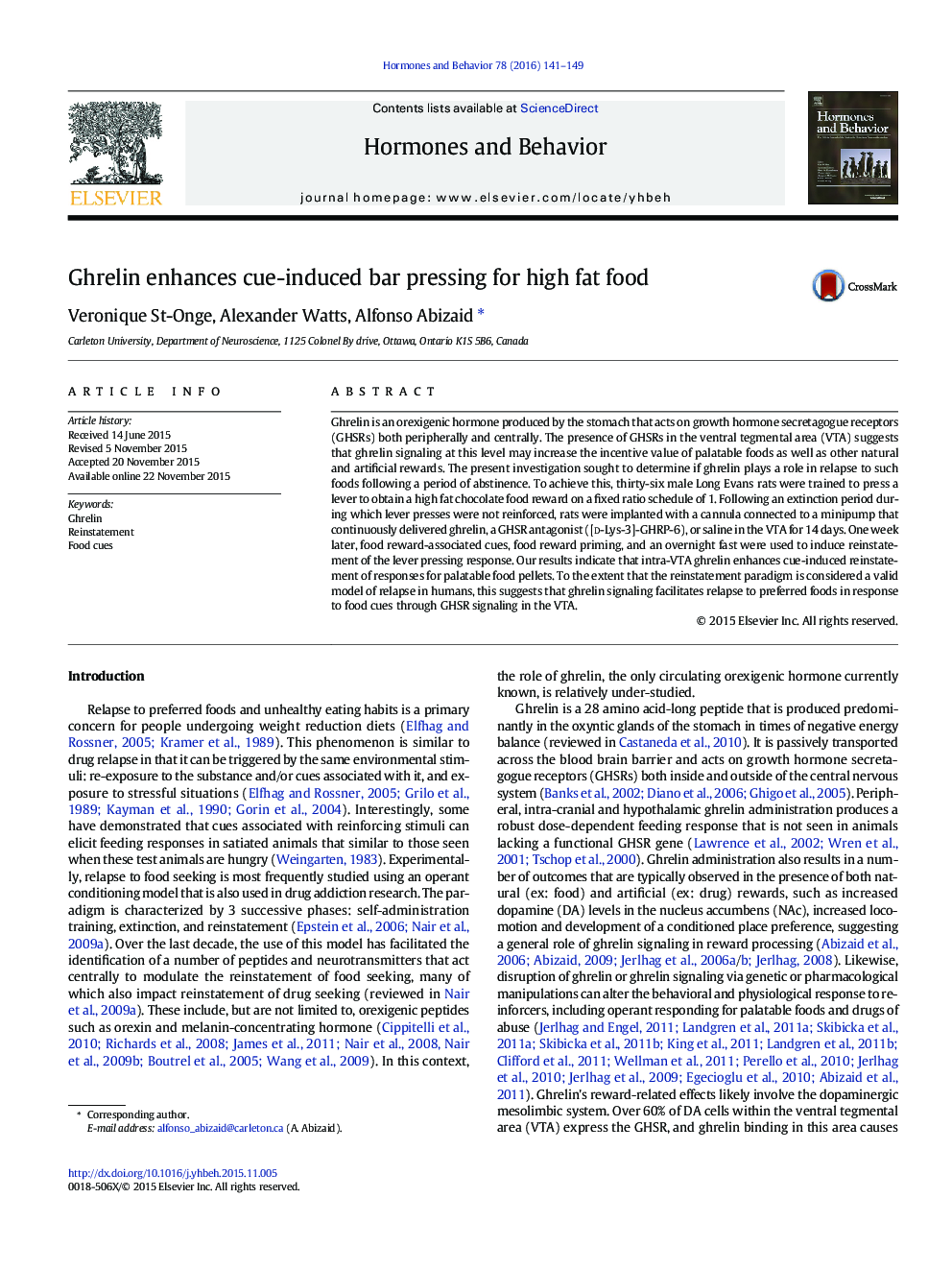| Article ID | Journal | Published Year | Pages | File Type |
|---|---|---|---|---|
| 6794596 | Hormones and Behavior | 2016 | 9 Pages |
Abstract
Ghrelin is an orexigenic hormone produced by the stomach that acts on growth hormone secretagogue receptors (GHSRs) both peripherally and centrally. The presence of GHSRs in the ventral tegmental area (VTA) suggests that ghrelin signaling at this level may increase the incentive value of palatable foods as well as other natural and artificial rewards. The present investigation sought to determine if ghrelin plays a role in relapse to such foods following a period of abstinence. To achieve this, thirty-six male Long Evans rats were trained to press a lever to obtain a high fat chocolate food reward on a fixed ratio schedule of 1. Following an extinction period during which lever presses were not reinforced, rats were implanted with a cannula connected to a minipump that continuously delivered ghrelin, a GHSR antagonist ([d-Lys-3]-GHRP-6), or saline in the VTA for 14Â days. One week later, food reward-associated cues, food reward priming, and an overnight fast were used to induce reinstatement of the lever pressing response. Our results indicate that intra-VTA ghrelin enhances cue-induced reinstatement of responses for palatable food pellets. To the extent that the reinstatement paradigm is considered a valid model of relapse in humans, this suggests that ghrelin signaling facilitates relapse to preferred foods in response to food cues through GHSR signaling in the VTA.
Keywords
Related Topics
Life Sciences
Biochemistry, Genetics and Molecular Biology
Endocrinology
Authors
Veronique St-Onge, Alexander Watts, Alfonso Abizaid,
